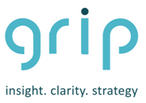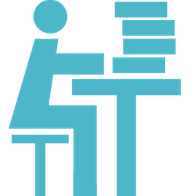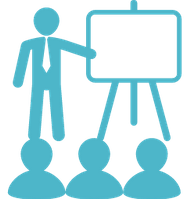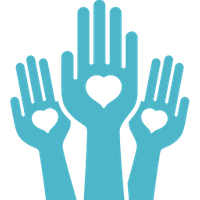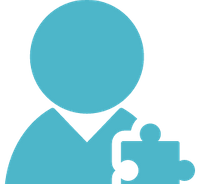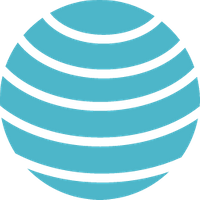Meet the new needs of your organization
Our Services
Capacity building needs of organizations are universal phenomena. The degree of these needs may vary depending on the diverse contexts we find ourselves in. Historically speaking, organizations were in need of technical skills, organizational development related matters (like designing programs, proposal writing, monitoring and evaluation), and also financial related matters (like fundraising and accounting). In fact, these needs were the needs of the donor agencies more than it were the needs of the implementing organizations. Today the trend has changed, and there are new needs emerging as the sector is becoming more developed and advanced. GRIP is responding to these new needs.
Policy & Strategy papers/ Baseline & Needs Assessments
Organizations that are into dealing with programs of social intervention whether of development/economics, human rights, advocacy, gender, caste/race, child rights, environment, often launch into action without having carried out adequate social analysis and research. This can have the effect of actions that can tend to become superficial and not address the real issues at stake.
‘GRIP’ will engage qualified researchers in the task of field/internet-based research and come up with analysis of the issues to be addressed, propose a perspective and paradigms from which it/they can be dealt with for the organization to consider and work from.
Capacity Building in Planning/Monitoring/Evaluation, and Social Marketing/Fund Raising/Advocacy
Many organizations often require technical assistance in writing up and formulating project proposals for funding sources. ‘GRIP’ will provide support in developing and formulating project submissions and training personnel in project/proposal writing based on sound participatory social research and analysis using participatory tools. Similar assistance will also be needed in the usage of PME (Planning-Monitoring-Evaluation) mechanism.
Independent Organizational and Project evaluations/Assessments
Quite often, an organization will choose to bring in an external evaluator to appraise its work and make suggestions about its performance and areas of achievement. It may also ask for identifying areas of non-achievement. These are like performance audits (going beyond only financial aspects) around which stakeholders- funders, the Board of Directors, A General Body, the community- assesses their relationship with the organization and or projects carried out by it.
‘GRIP’ can support such comprehensive audits by bringing in an individual or a team of individuals to carry out 'Participatory Monitoring and Evaluation' as a collaborative process which involves stakeholders at different levels working together to assess the project, the policies and the strategies in order to take corrective actions. This collaborative approach should involve all relevant and influential stakeholders including the public and the private sectors. Conducting user surveys only or asking the community members to respond only to questionnaires doesn't qualify as participatory evaluation. Instead, local stakeholders should help identifying the problems, collect and analyze the information, help in generating recommendations and finally implement the change. At the end of the study, findings will be placed before the core group of the organization and then to those who commission the study along with the comments of the core group.
Team Building and Conflict Resolution within organizations
In any functional organization, conflicts between the staff or between the management and the staff could occur. Conflicts can destroy organizations but they could also be a developmental factor in the organization if we know how to handle the situation well. We need to benefit from the “minority” wisdom within the organization. We need to show leadership and not be carried out with our enthusiasm for the majority opinions. 'GRIP” offers the “Arnold Mindell's” methodology of 'Deep Democracy” where the organization will benefit from the wisdom of the minority and avoid creating a destructive minority within.
Human Resource Development
People are the core of any organization. It is they who can make things work or retard advancement of the organization’s agenda. Reviews and re-definitions of organizational goals and individual functions within them must of necessity be accompanied by preparations pertinent to the emerging organizational visions/patterns/methods etc.
‘GRIP’ would assist by bringing in training modules and initiatives aimed at re-gearing and re-tooling people with new skills and capacities. For instance, in the case of conducting training programs on strategic planning, in an organization where the staff has very limited to no knowledge about such methods and concepts, it can only be oriented but not trained in strategic planning in the short period of two days’ time. 'GRIP' offers an accompaniment and coaching approach to the staff to train them and help them while conducting their strategic planning exercise.
Developing Participatory/transparent Governance patterns and systems
All too often, organizations develop patterns of governance which either never gets to be renewed and/or revised despite changing times and contexts. Governance systems which lack in transparency and dynamism, and which do not cater to the social context or changing agendas can easily result in organizational disarray. It can also cause decline drop in morale of those involved in its working. Stubborn refusal to deal adequately with this situation and to apply new organizational principles based on transparent-participatory mechanisms and strategies can amount to organizational disorder. Such situations need incisive analysis, and solutions that are developed with wide participation of stakeholders and community intervention points- the people- so as to avoid organizational crisis.
‘GRIP’ would seek to engage in some objective analysis of the facts and problems and based on collective problem identification also seek collective problem solving tactics to remedy the situation. As in the case of the Future Search, governance systems must revolve around vision-mission-strategic intents.
Institutional Development and Organizational Strengthening
Often times, Organizations suffer from the predicament of inertia and/or a ‘status quo’ syndrome. This can happen to organizations which have grown in years and find re-appraisals painful and, hence, avoid them. Unwillingness to transform and renew can often cause an organization to deteriorate to the point where its very relevance and foundation are shaken. The timely infusion of ‘add-ons’ that can strengthen an organization through bringing in external inputs and the study of parallel/similar organizations can revitalize it. Quite often, patterns of organizational operation/working, become outmoded and, thus, ineffective. A collective and transparent review of the systems and structures in use to advance organizational goals needs to be periodically undertaken to pre-empt lethargy and negative growth.
‘GRIP’ employs a time-tested approach called FUTURE SEARCH that enables organizations to create and develop ground-breaking/innovative approaches to organizational development. It is a practical method of bringing forward positive changes in organizational behavior and learning /community engagement and energy for realizing sustainable solutions to deep seated societal issues. Future Search can enable and equip an organization to re-envision, re-strategize, reorganize, and restructure itself to emerging societal challenges based in scientific social analysis.
Future Search also engenders faith in the collective wisdom and capacities of people- regardless of their position, status, gender, and age to come together and develop ‘common futures’ for the systems and structures they work within, belong to, and seek to sustain and transform. Through the use of Future Search as a tool, ‘GRIP’ can facilitate the creation of a new tomorrow based on a look-back at organizational history, at the immediate social context, and evolve new visions, method, and energies to implement the plans that emanate.
MENA Office
Mr. Rifat Kassis
GRIP.Consulting
PO Box 35
Beit Sahour
PALESTINE
Tel: +970-599-469380
Europe Office
Mr. Harry Derksen
GRIP Consulting
c/o New World Company
The Netherlands
Tel: +31 (0)6 222 311 49
GRIP.Consulting
since 2015
